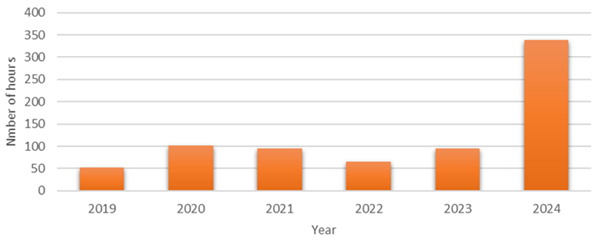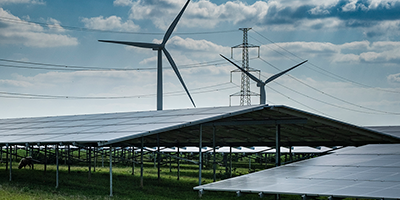07 October 2024
Emergency measures on the Belgian power grid during the summer avoided due to market parties adapting their behaviour, coupled with weather conditions and higher consumption levels
BRUSSELS | Overall, our electricity system held up well over the summer months. The forecasts for the summer predicted quite a few days with considerable export requirements against a backdrop of low consumption and substantial renewable energy production, posing a challenge to the system. Major problems were avoided thanks to the inclement weather, with few very sunny days, higher levels of consumption, and market parties adjusting their positions in advance. Elia issued 23 warnings, and in each case the market managed to make the required adjustments. A non-Belgian system operator only had to step in very occasionally. For future summers, Elia is working with the distribution system operators on a plan to further unlock market flexibility.
Elia's summer outlook pointed in advance to very high export requirements on very windy and sunny days when there were low levels of consumption. Such scenarios can have dramatic consequences for the market and the grid. Elia therefore shared this information with the various stakeholders and devised technical measures with distribution system operators (DSOs) that could be applied in an emergency. These included the shutdown of large-scale solar installations or onshore wind farms, including those connected to the networks of the Belgian DSOs (but not those of residential customers).
The market played its part
The extensive communication and issuing of market messages and warnings had a significant impact. Elia issued 23 warnings, after which we generally saw a shift in market parties' positions on the day-ahead market. In addition, Elia still managed to find sufficient flexibility products on the market on the day itself in order to eliminate the remaining imbalance. Only a few times was the assistance of non-Belgian grid operators required. In the end, there was no need to deploy the technical mechanisms developed.
Helped by the weather and consumption
As well as the market parties' behaviour, this outcome was mainly due to the gloomy weather over the summer. The output of installed solar panels was significantly lower than in previous summers. A power factor of 60% to 70% occurs an average of 15% of the time in summer. This summer it was only 1.5% of the time. In addition, consumption was also slightly higher than last summer (+ 500 MW). All these factors combined meant that export requirements were lower than predicted.
Record number of hours with negative prices
However, maintaining the balance in a system with a lot of renewable energy remains an ongoing challenge, so further development of flexibility is urgently needed. The number of hours of negative prices on the day-ahead market is a clear sign of this. Despite the absence of major problems, we are seeing many more hours with negative prices than before. At such times we must be able to encourage consumers to use electricity. There is still a need to improve how the market works, as well as having technical mechanisms available that can be deployed when necessary. Elia is working closely with many partners to achieve this.
Number of hours with negative day-ahead prices from April to August


Press releases
-
Emergency measures on the Belgian power grid during the summer avoided due to market parties adapting their behaviour, coupled with weather conditions and higher consumption levelsPDF - 175.3 KB
-
Mesures d’urgence sur le réseau électrique belge évitées pendant l’été grâce au comportement adapté des acteurs de marché, aux conditions météo et à la consommation en haussePDF - 216.36 KB
-
Noodmaatregelen op het Belgische elektriciteitsnet tijdens de zomer vermeden dankzij aangepast gedrag van de marktpartijen, de weersomstandigheden en een hoger verbruikPDF - 175.86 KB


